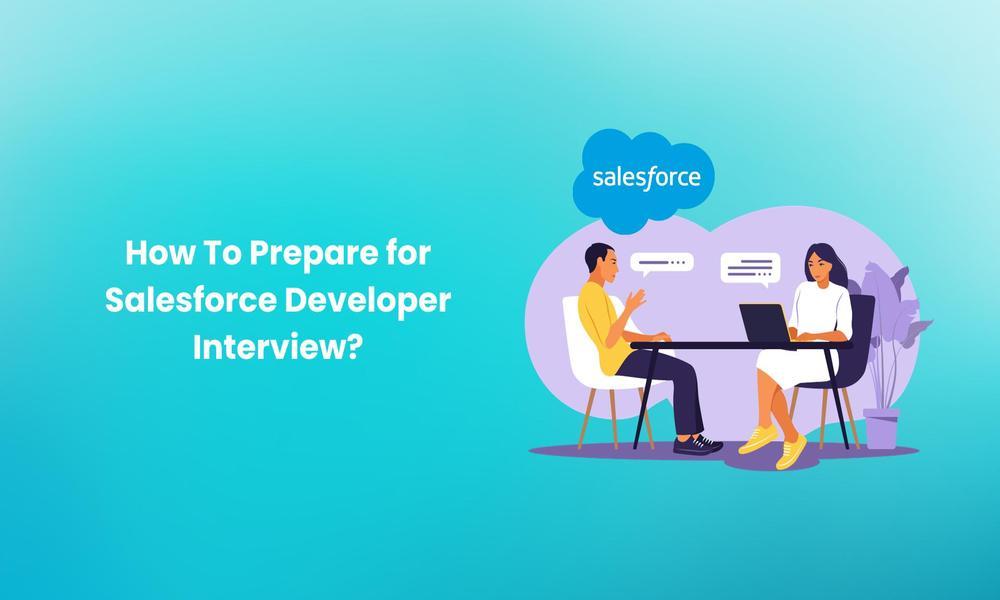You’ve decided to pursue a career as a Salesforce developer, which is a highly desirable occupation in the customer relationship management (CRM) industry. Effective preparation for a Salesforce developer interview is essential to securing your ideal job, regardless of experience level or stage of career. We’ll go through the strategies and steps you should take to dominate your Salesforce Developer Interview Questions. Everything from behavioural inquiries to technical skills will be covered, along with how obtaining a Salesforce Admin Certification can improve your prospects.
Why Pursue a Career as a Salesforce Developer?
First, let’s examine the allure of a job in Salesforce development before getting into the nitty-gritty of how to ace the interview.
Salesforce is the most popular customer relationship management (CRM) system today. Organisations may better manage client connections, improve sales operations, and base decisions on data with its help. As a Salesforce developer, you’ll be responsible for customising and expanding the platform to suit the specific requirements of individual organisations.
Among the many promising prospects presented by Salesforce development are:
- As more companies use Salesforce, the need for qualified developers increases.
- Developers who work with Salesforce often get lucrative compensation because of the demand for their expertise.
- You can work in-house, as a consultant, or even as a freelance developer.
- The Salesforce ecosystem is ever-changing, providing enough chances for new experiences and knowledge acquisition.
Preparing for a Salesforce Developer Interview
Preparation is the key to success for a Salesforce developer interview. Below, we’ll examine each facet of your interview preparation in further detail:
- The best way to become proficient as a Salesforce developer is via hands-on practice. Create a test environment in Salesforce Developer Edition to play around with triggers, custom objects, and Visualforce pages. In addition to honing your abilities, creating practical solutions and apps that meet real-world company problems can provide you with relevant examples to share during the interview.
- The importance of integration in Salesforce development cannot be overstated. Make sure you have a solid understanding of integration strategies like REST and SOAP APIs. Integrating Salesforce with other platforms shows you can function effectively in a complex technological environment.
- Mastery of Apex, Salesforce’s proprietary programming language, and Visualforce, Salesforce’s platform for developing individualised user interfaces, is required. Learn the ins and outs of Apex, from triggers to batch processes, and get some hands-on experience with building tidy, effective code. With a firm knowledge of Visualforce, you can build user interfaces that cater to your business’s or customers’ unique requirements.
- The ability to work with Lightning Components is becoming more important as the Salesforce ecosystem migrates to the Lightning Experience. Learn the Lightning Component Framework, and you’ll be well on your way to creating user interfaces that are as functional as they are beautiful. Demonstrating your mastery of Lightning is a great way to show you’re prepared for cutting-edge Salesforce development projects.
- Knowledge of Salesforce’s data management capabilities is essential. Learn the processes of importing, exporting, cleaning, and migrating data. Data quality is critical to efficient CRM operations, emphasising your understanding of managing clean and correct data.
- Developers interested in simplifying their development and deployment processes can look at Salesforce’s developer tools, such as Salesforce DX. Knowing you’re acquainted with these resources shows you care about using the best methods possible.
- In addition to your technical abilities, you should be ready to answer questions about your personality and past experiences. Soft skills like cooperation, problem-solving, flexibility, and communication are tested via these questions. Demonstrate that you can work well with others and handle yourself professionally in various job settings.
- Prioritise learning Salesforce’s best practises by digging into the documentation. Among them are worries about security, scalability, and low maintenance. Highlight your ability to come up with solutions that adhere to these standards to ensure the success and longevity of your initiatives.
- You may anticipate questions that will need you to come up with Salesforce-based solutions to real-world business challenges based on a certain scenario. Regularly engaging in analysis and outlining a plan is a great way to demonstrate your problem-solving abilities and knowledge of Salesforce.
Conclusion
To succeed in a Salesforce developer interview, it is important to practise both technical and soft skills. In order to get a job as a developer or advance in your existing role, you will need to put in significant study time. Keep in mind that the Salesforce ecosystem is fluid and open to growth. Keep an inquisitive mind, brainstorm innovative uses for the system, and adapt well to change.

